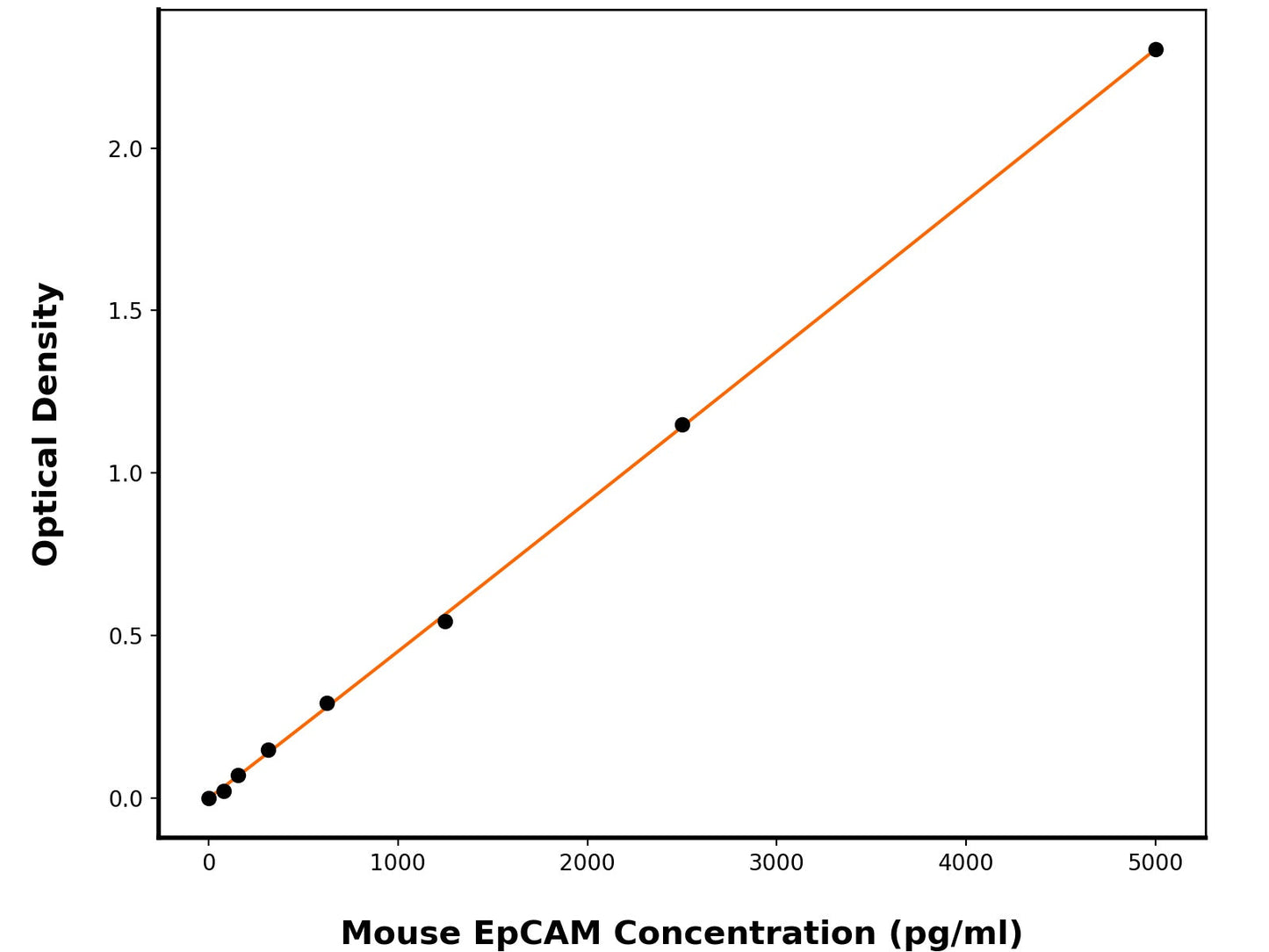1
/
of
1
Mouse Epithelial Cell Adhesion Molecule (EPCAM) ELISA Kit
Mouse Epithelial Cell Adhesion Molecule (EPCAM) ELISA Kit
This ELISA kit is designed to detect Mouse Epithelial Cell Adhesion Molecule (Mouse EPCAM). The assay plate has been pre-coated with mouse anti-Mouse EpCAM monoclonal antibody. When the sample containing EpCAM is added to the plate, it binds to the antibodies coated on the wells. Then, a horseradish peroxidase conjugated mouse anti-Mouse EpCAM Antibody is added to the wells and binds to EpCAM in the sample. After washing the wells, substrate solutions are added, and the color intensity is directly proportional to the amount of Mouse EpCAM present. The reaction is stopped by adding an acidic stop solution, and the absorbance is measured at 450 nm.
Catalog No:
BPE327
Regular price
$754.00 USD
Regular price
$580.00 USD
Sale price
$754.00 USD
Unit price
/
per
2 weeks
Couldn't load pickup availability
Product Details
Species Reactivity
Mouse
Sensitivity
15.63 pg/mL
Detection Range
78.13-5000 pg/mL
Sample Type
Serum, plasma, cell culture supernates
Incubation(s)
3.5 hour(s)
Research Areas
Tags and Cell Markers
Background
Epithelial Cell Adhesion Molecule (EpCAM), also known as GA733-2 antigen, is a type â…transmembrane glycoprotein composed of an extracellular domain with two EGF-Like repeats and a cystenin-rich region, a transmembrane domain and a cytoplasmic domain. It modulates cell adhesion and proliferation. Its overexpression has been detected in many epithelial tumours and has been associated with high stage, high grade and a worse survival in some tumour types. EpCAM has been shown to function as a calcium-independent homophilic cell adhesion molecule that does not exhibit any obvious relationship to the four known cell adhesion molecule superfamilies. However, recent insights have revealed that EpCAM participates in not only cell adhesion, but also in proliferation, migration and differentiation of cells. In addition, recent study revealed that EpCAM is the Wnt-beta-catenin signaling target gene and may be used to facilitate prognosis. It has oncogenic potential and is activated by release of its intracellular domain, which can signal into the cell nucleus by engagement of elements of the wnt pathway. Cancer Immunotherapy Immune Checkpoint Immunotherapy Targeted Therapy
Shipping Condition
Shipped on cold gel packs.
Storage Condition and Shelf Life
This product can be stored at 2-8C.
Analyte
Epithelial cell adhesion molecule
Regulatory Status
For Research Use Only

